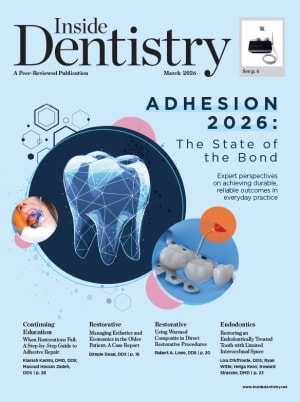Adequate Sleep Is Essential to Child Development
Meghna Dassani, DMD
Most doctors are well aware of the importance of sleep to our overall health and ability to function. As a general dentist, I help young patients breathe better every day at my sleep dentistry practice and regularly educate a variety of medical professionals about pediatric dental sleep medicine. When it comes to children, restful, uninterrupted sleep becomes even more crucial because it plays a significant role in their ongoing development. Sleep also helps to regulate children's mood, behavior, and cognitive function, recharging their bodies and minds and preparing them for the challenges of the day ahead. Moreover, it helps to prevent accidents and injuries because a lack of sleep can impair children's coordination, reaction time, and judgment.
Like food and water, sleep is a fundamental physiological need for everyone, but especially children. As children sleep, their bodies go through essential processes, including growth and repair. Sleep also boosts children's immune systems, which reduces their risk of developing illnesses and infections, and it supports the proper growth and development of organs and tissues and promotes healthy heart and lung function. In addition, sleep helps children maintain a healthy weight by regulating leptin and ghrelin, which are metabolism- and appetite-controlling hormones. Studies have linked poor sleep to an increased risk of childhood obesity because it can disrupt children's hormonal balances and lead to overeating.
Beyond its physiological effects, sleep is essential to cognitive development and emotional wellness. Children need adequate sleep for their cognitive development. As they sleep, children's brains consolidate and organize the information that they learned during the day. Sleep also helps to improve memory and the ability to learn, which is critical to academic performance. Research has shown that children who get adequate sleep perform better in school, exhibit greater attention and concentration, and demonstrate improved problem-solving skills. Children also need adequate sleep to regulate their emotions and emotional responses. Getting enough high-quality sleep can help to prevent irritability, mood swings, and behavioral problems. Conversely, research has shown that inadequate or poor sleep is associated with an increased risk of pediatric mood disorders, such as depression and anxiety. Healthy sleep helps children develop emotional resilience, and emotional resilience enables them to cope with stress and challenges more effectively.
As doctors, dentists can provide parents with guidance regarding helping their children improve their sleep quality. Parents should be encouraged to establish a consistent sleep schedule for their children. A consistent sleep schedule helps children's internal clocks regulate and promotes healthy sleep patterns. Parents should also be encouraged to create a calming bedtime routine for their children that includes activities such as taking a warm bath, reading a book, or listening to soothing music. An important component of this routine involves limiting screen time. Screens emit blue light, and blue light can interfere with the production of the sleep-regulating hormone melatonin. Therefore, parents should limit or stop their children's screen time starting at least 1 hour before bedtime. In addition to establishing consistent bedtime and wake-up routines, parents should be advised to encourage their children to engage in age-appropriate physical activities, such as taking walks, riding bikes, or playing sports. Regular physical activity during the day can help children sleep better at night.
It is important for parents to be vigilant about watching for signs and symptoms of sleep disturbances in their children. Among other issues, the presence of sleep problems can be indicated by snoring, frequent nightmares, bed-wetting, sleepwalking, trouble concentrating or tiredness, and difficulty falling asleep or staying asleep. If parents identify any of these issues, they should consult a healthcare provider for further evaluation. As a dentist with a practice with a huge focus on sleep dentistry, I can't emphasize enough the importance of sleep for children's overall health and physical, cognitive, and emotional development. And by educating parents about how to promote healthy sleep habits in their children, we can help more children get the rest they need to reach their full potential as well as help to identify those who may require treatment to do so.
About the Author
Meghna Dassani, DMD, maintains a private practice in Houston, Texas, that offers sleep apnea treatment for children and adults.
